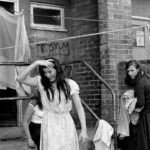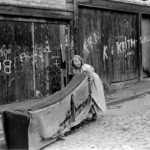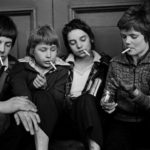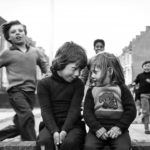For my identity project into the influence that adults have on the development of children’s identity, I have decided to take inspiration from the work of Tish Murtha, a social documentary photographer who worked in Britain. she is was best known for documenting more marginalized communities, such as the working class in the North East of England.
Her photography is documentary style, and often uses candid photography in order to truly show a true to life representation of the life, struggles and social workings of the groups she photographed. Examples of her work can be seen below:
Her work often shows the raw emotion on the faces of her subjects, allowing for the identity of the subjects to be presented through their emotions, feelings and reactions to their present situations.
Murtha uses her photography to inject personality into the individuals who are often simply stereotyped and grouped into certain groups of people. Her photography gives individual personalities to the people who are often shun by society due to their social class, position in society, age, gender or job.
Murtha produced exhibitions such as Youth Unemployed (1981), Elswick Kids (1978) and Juvenile Jazz Bands (1979), which showed the struggles of children living in the lower bands of society during the 70’s and 80’s, using photography to display real life issues such as poverty, unemployment, conflict and a lack of individual identity within the children of the working class.
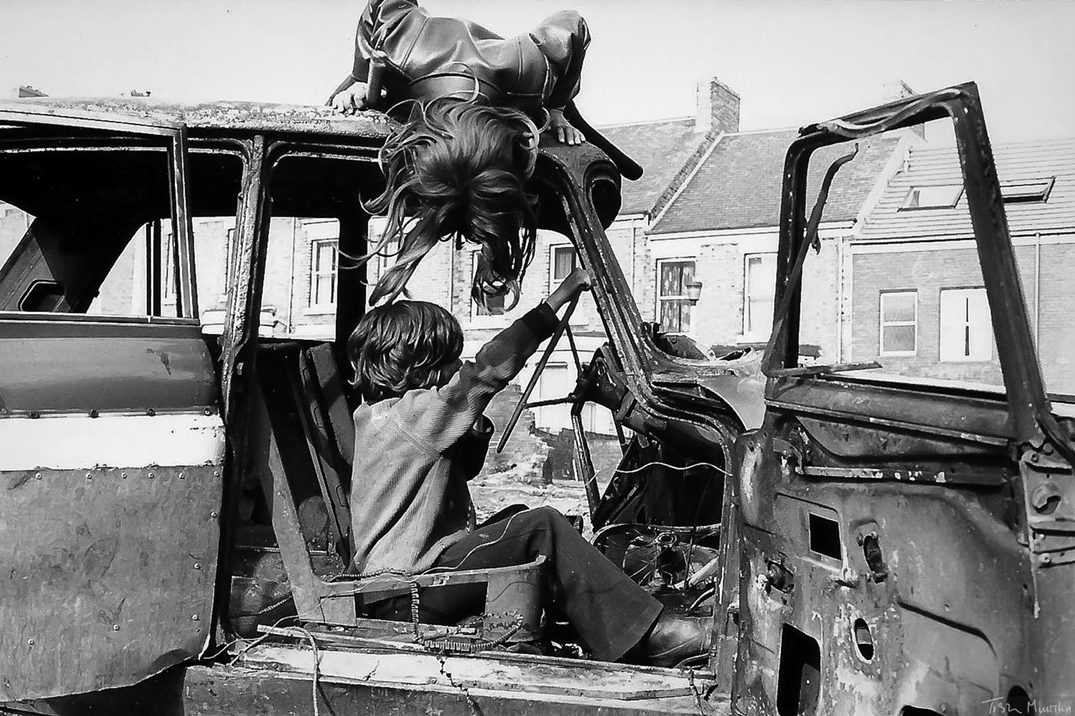
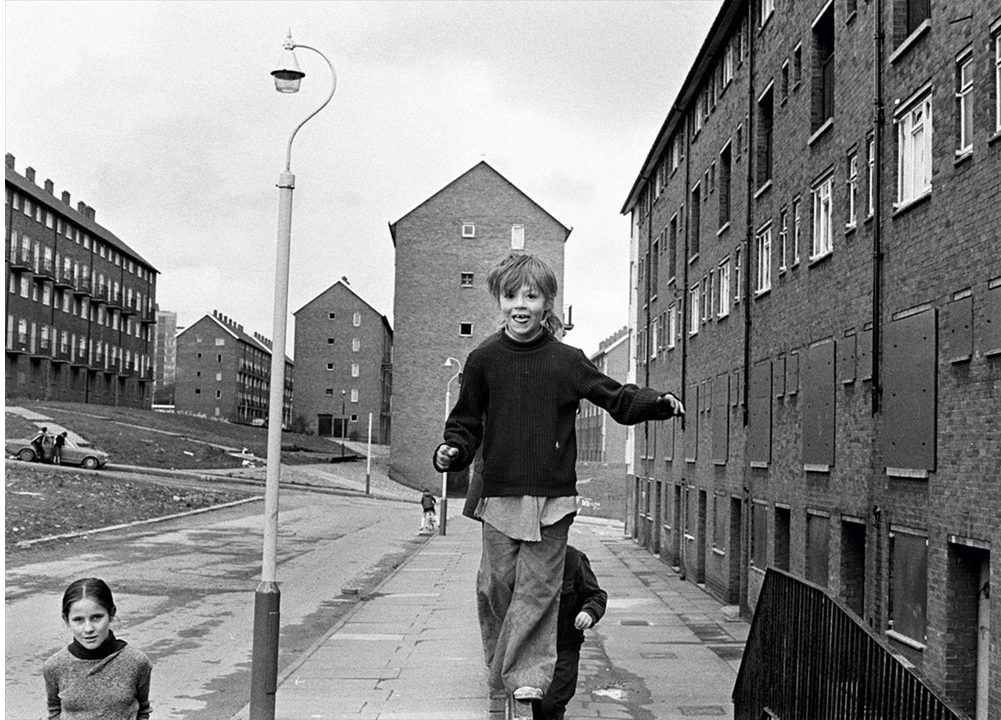
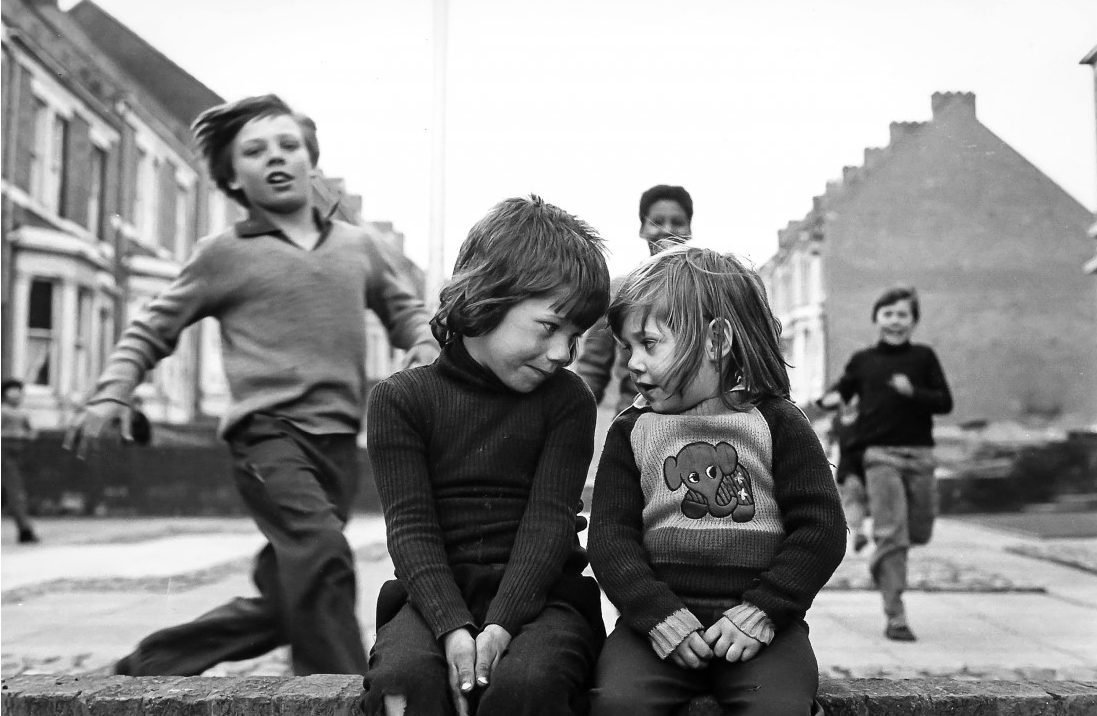
Through her photography, Murtha raised important issues about society with the public, as her work depicted the struggles of the working class, and the social issues they face, which the viewer can then compare to the issues they themselves face.
Murtha, born in South Shields in the North East of England, was accustomed to the poverty and deprivation that was common in the area. Her work focused a lot of attention to proving that, although the subjects in the photographs often look care-free and happy, the environment in which they live is often poverty-stricken, run down, and appears to lack any outside help in order to make it safe and appropriate for living in.
 The above image was taken by Murtha as part of her Youth Unemployment exhibition. This image uses the shock factor of the young boy holding a cigarette so nonchalantly in his mouth, in order to draw the attention of the viewer, before allowing them to understand the underlying meaning. This image portrays the children in a situation (playing cards and smoking cigarettes) that would normally be associated with adult behavior. Here, Murtha is commenting on the fact that a deprived environment often forces children to grow up faster than they should, and the situation they are placed in (poverty) influences them to take the identity of the adults around them.
The above image was taken by Murtha as part of her Youth Unemployment exhibition. This image uses the shock factor of the young boy holding a cigarette so nonchalantly in his mouth, in order to draw the attention of the viewer, before allowing them to understand the underlying meaning. This image portrays the children in a situation (playing cards and smoking cigarettes) that would normally be associated with adult behavior. Here, Murtha is commenting on the fact that a deprived environment often forces children to grow up faster than they should, and the situation they are placed in (poverty) influences them to take the identity of the adults around them.

The above image is an example of where Murtha took close up head-shots of individuals living in the run down areas of Newcastle. Murtha incorporated elements of both candid and posed photography. The above image focuses on the appearance of the subject in the foreground, who appears to come from a poorer, lower class background. While the subject appears to be from a less privileged background, his facial expression does not convey negative emotions, rather he seems distracted by something interesting. 
This image by Murtha really conveys the theme that all of her work follows. The young girl in the image is seen jumping on an abandoned car, a dangerous activity in a hazardous run down area that now days, would violate health and safety regulations immediately. However, the context of the image indicates that the subjects are actually enjoying this activity, with the subject in the background moving to stand back on the car roof (presumably after already jumping off). Here, Murtha is able to covey that, even among the deprivation and poverty, children still adapt to their environment and create fun out of seemingly dangerous or boring situations.



